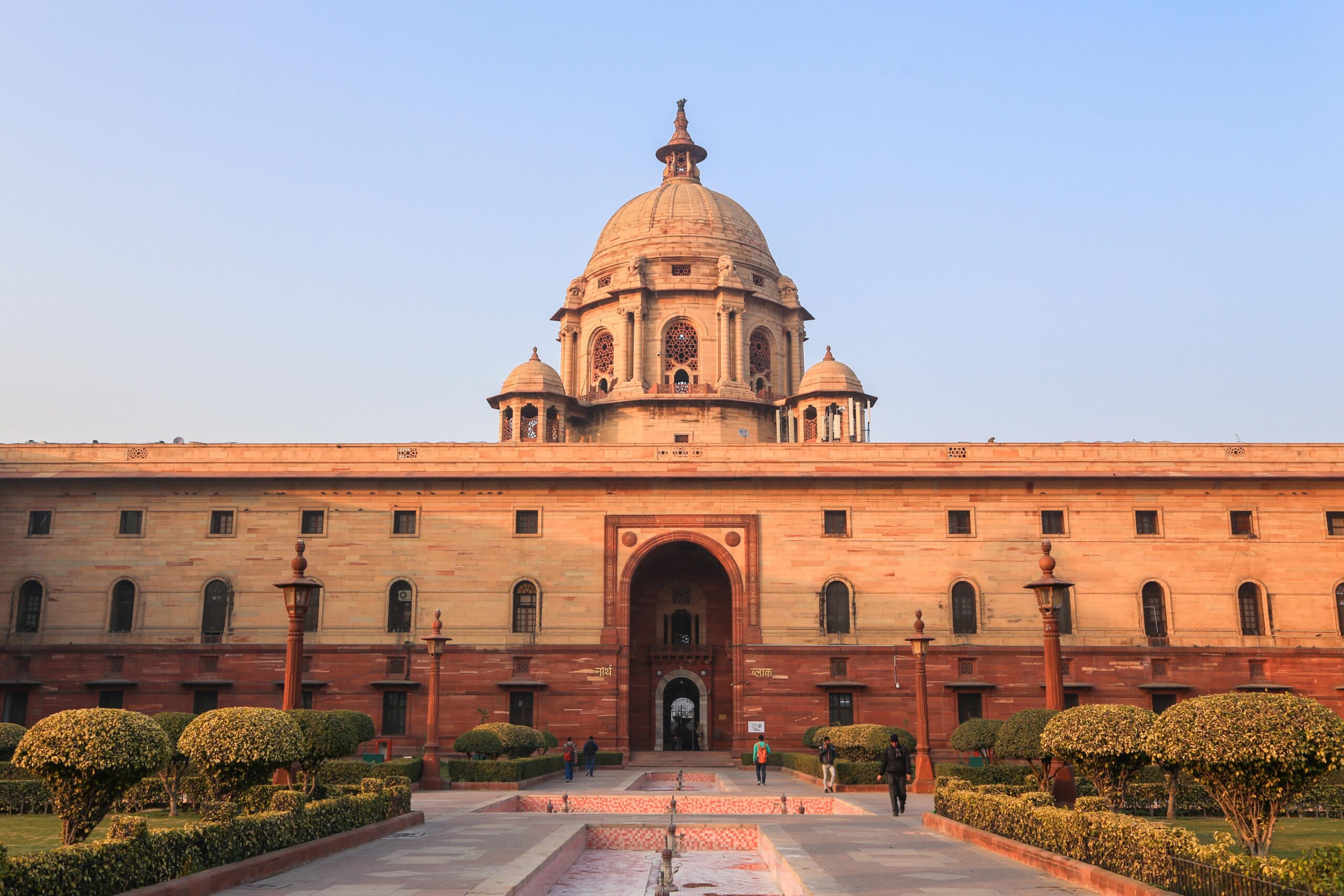The Anti-Defection Law has created a democracy of parties and numbers in India, rather than a democracy of debate and discussion. Lawmaking is increasingly driven, not by the compulsive force of a party’s argument, but by the brute force of a party’s numbers in the legislature.
Indian politics is confronting two strangely contrasting realities. While the BJP runs one of the most centralised single-party governments in history at the Centre, state governments seem far from such certainty and stability.
This week, the Madhya Pradesh government became the latest to run into trouble, after Congress leader Jyotiraditya Scindia defected to the BJP and threatened to take a handful of MLAs with him. This is not the first time an opposition-run state government has suffered from defections. In 2019, the Congress-JD(S) coalition government in Karnataka fell after a handful of their MLAs defected to the BJP.
In 1985, shortly after he came to power, Prime Minister Rajiv Gandhi tried to prevent precisely these kinds of occurrences from happening: Upon being elected to the legislature, lawmakers were switching parties and causing political instability – often lured by the rival party with plum public posts or, simply, money. The standout example was Gaya Lal, a Haryana politician who served in the state assembly in the 1960s. In 1967, Lal switched parties three times within the same day, shuttling between the Congress and the Janata party.
To counter the menace of corruption-driven defections and ensure political stability, Rajiv Gandhi introduced the Anti-Defection Law as the new Tenth Schedule of the Indian Constitution. Under the law, the Speaker of the House – in Parliament and the state assemblies – can disqualify Members, if they switch parties or vote/abstain on an issue against their party’s directions (also called the ‘party whip’). Members may only defy their party whip if two-thirds of their party decides to defect or rebel against the whip.
Over the years, the impact of the law has been to create monolithic parties in the legislature: It isn’t so much the number of MPs that matters as the number of parties elected to the parliament. While parties can defect from a ruling coalition to the opposition (and vice-versa), individual Members are bound by the party under whose ticket they were elected. Similarly, while parties in the ruling coalition can order their Members to vote against a government bill, no individual Members from the ruling coalition can rebel on their own.
Yet, the current form of the Anti-Defection Law has proven to be woefully ineffective in achieving its key objective – that of preventing quid-pro-quo deals and political instability. Consider Karnataka’s political crisis in 2019, for instance. After the elections in the previous year, the Congress and the JD(S) put their 117 MLAs together to form the government; the BJP – with 104 seats – was in the opposition.
But just fourteen months into its term, the government ran into trouble. As many as 16 MLAs from the ruling coalition resigned from the House within two days, shrinking the House majority to 105 and the government’s strength to a mere 101 MLAs. Meanwhile, the BJP lured two independent MLAs into its midst and – having achieved the lowered majority mark – formed the government. In the by-elections that took place shortly afterwards, many of the rebel MLAs who had resigned were re-elected to their seats on a BJP ticket. Chances are that Madhya Pradesh might follow the same route in the days that follow.
Critics might argue that there is nothing wrong with these events: If an MLA resigns and is re-elected in the by-election under a different party, that would be a sign of public approval for the defection itself, they would say. But this is a fallacious argument. By-elections are not anticipated by the incumbent’s challengers – and as a result, the incumbent candidate has a clear head start. In Karnataka, the by-elections were held only a few months after the resignations, thereby giving little time for the opposition in each constituency to plan or mobilise an effective election campaign. That is why many of the rebel MLAs were re-elected to the seats they vacated.
Meanwhile, in New Delhi, the picture looks very different. Bolstered by two elections that yielded massive single-party majorities for itself in the Lok Sabha, the Modi government has been pushing through laws at a furious pace with limited debate or discussion. The problem is exacerbated by the Anti-Defection Law, which prevents any issue-based dissent by MPs within the BJP.
Even the controversial Citizenship Amendment Act (CAA) fell victim to the haste. In the aftermath of its passage, some allies of the BJP expressed dissent, owing to limited discussion in Parliament on the law and its likely consequences.
The Anti-Defection Law is a very unique Indian feature. In the British parliament, for instance, MPs who defy the party whip often lose party membership, but not their seat in parliament. In America, Congressmen have often voted against their own party throughout history. Senator John McCain differed with President Trump and his fellow Republicans as much as 17 percent of the time during votes in the Senate.
There are several reasons why many democracies have not adopted an anti-defection law. If Members are able to vote on laws independently, they would act as an effective check on the government. What’s more, Members will also ensure democratic debate in the public domain before laws are passed – because they will be personally accountable to their constituents for their vote. The Anti-Defection Law, in effect, dilutes the separation of powers between the Executive and the Legislature – and centralises power in the hands of the cabinet.
In the parliamentary system, the independence of lawmakers is doubly important, given that the Executive is a part of the Legislature and the separation of powers between the two is weaker. Independence will also have other benefits: Since lawmakers can now vote independently in the House, voters will elect the candidate who would best represent their local interests, regardless of their party. Over time, this means that parties would have to field candidates with stronger credibility at the grassroots, rather than those merely loyal to the party leadership.
All of this makes a strong case for India to amend the Anti-Defection Law, in order to give elected lawmakers more independence to stand up for their constituencies. But the concern over political instability and quid-pro-quo deals is still valid. One possible solution would be to disqualify Members only if they vote against their party whip during important events such as no-confidence motions. On all other matters, Members ought to be given full independence to vote as they choose.
Such an amended Anti-Defection Law can also counter the scourge of mass resignations from the House – a key cause of political instability in Karnataka and Madhya Pradesh. Under the status quo, no law can reasonably prevent a lawmaker from resigning: Some lawmakers may feel compelled to resign from the House, owing to genuine dissent against their party.
But ironically, increased independence for lawmakers may itself take care of this problem. If an amended Anti-Defection Law allows Members to defy the party whip, Members may register their dissent against their party on specific issues by exercising their independence in the House – without having to resign from the party or the House.
To prevent Members from mass resigning in order to switch parties under a quid-pro-quo deal, the amended Anti-Defection Law should forbid a resigning Member from being re-elected during the by-election that follows immediately after their resignation. If a Member resigns, they should only become eligible to contest again after the term of the Assembly ends (that is, during the following general election or state election; not the by-election that results from their resignation).
The Anti-Defection Law has created a democracy of parties and numbers in India, rather than a democracy of debate and discussion. Lawmaking is increasingly driven, not by the compulsive force of a party’s argument, but by the brute force of a party’s numbers in the legislature. Change is long overdue.
Mohamed Zeeshan is a Founding Partner and the Editor-in-Chief of Freedom Gazette. He is the author of Flying Blind: India's Quest for Global Leadership (Penguin 2021). He is currently a foreign affairs columnist for The Diplomat, South China Morning Post and Haaretz, and writes 'The Z Factor' - a monthly Sunday column in the Deccan Herald. He has previously worked at the United Nations in New York and with the global consulting firm Kearney in Dubai. He is a graduate of International Affairs from Columbia University.


